Investing in a more inclusive, healthier future
How the Jameel Family is supporting the shared vision of the UN in ensuring healthy lives and promoting wellbeing
![]() The ambition of ensuring healthy lives and promoting wellbeing for all – UN Sustainable Development Goal (SDG) 3 – has never looked more relevant than it has during the ongoing global COVID-19 pandemic of 2020 and 2021, as the world grapples with the worst global healthcare crisis for over 100 years.
The ambition of ensuring healthy lives and promoting wellbeing for all – UN Sustainable Development Goal (SDG) 3 – has never looked more relevant than it has during the ongoing global COVID-19 pandemic of 2020 and 2021, as the world grapples with the worst global healthcare crisis for over 100 years.
Nor has it been more of a priority for the Jameel Family, as part of its mission to improve access to healthcare for patients across the globe, particularly in the ‘majority world’ of emerging markets outside Europe, the Far East and North America.
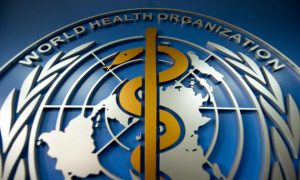 Ensuring healthy lives and promoting wellbeing is vital to building prosperous societies.
Ensuring healthy lives and promoting wellbeing is vital to building prosperous societies.
As the WHO states, better health “makes an important contribution to economic progress, as healthy populations live longer, are more productive, and save more.”[1]
Notwithstanding the effects of the pandemic – which may not be fully understood for decades to come – the past two or three decades have seen promising progress in improving healthcare and strengthening wellbeing.

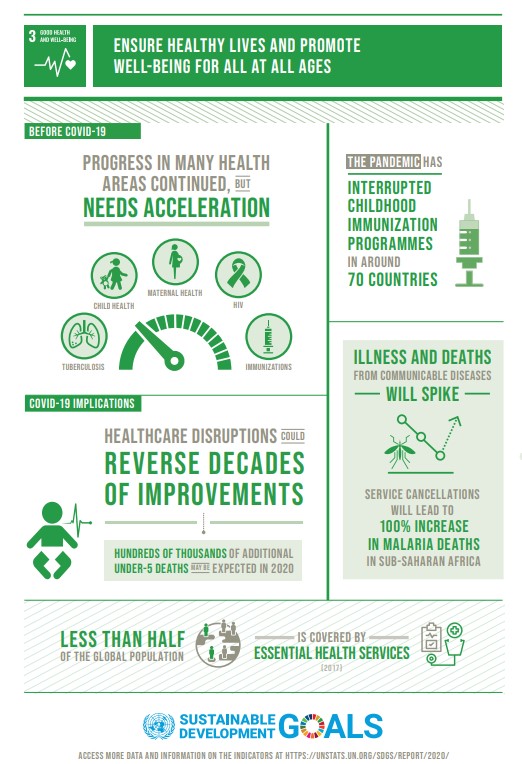 Our society has made significant advances against several leading causes of death and disease.
Our society has made significant advances against several leading causes of death and disease.
Life expectancy has increased dramatically; infant and maternal mortality rates have declined; we’ve turned the tide on HIV; and malaria deaths have halved.[2]
Behind these positive headlines, however, overall progress has been uneven, both between and within countries. There is a 31-year gap between the countries with the shortest and longest life expectancies.
And while some countries have made impressive gains, national averages often hide substantial domestic disparities in healthcare access. In every corner of our planet, whole communities are still denied access to good quality healthcare simply due to their birthplace, access to infrastructure or lack of wealth.
A snapshot of key data[3] provides a worrying summary of the challenges we face:
- 400 million people have no basic healthcare
- 6 billion live in fragile settings that present a significant challenge to global health
- Every 2 seconds someone aged 30-70 dies prematurely from noncommunicable diseases
- 19+ million children do not receive essential vaccines during the first year of life
In sub-Saharan Africa, over 287 million people live more than two-hours’ transport time from the nearest hospital. Two-thirds of sub-Saharan countries fail the global target of 80% of people living within two-hours of a hospital, while in South Sudan only 23% of people meet these criteria.[4] These figures are all the more worrying, given that around half of all deaths (and a third of disabilities) in low and middle-income countries could be avoided if people had ready access to emergency healthcare.[5]
It will be no easy task to find long term solutions to major healthcare challenges such as the spread of infectious disease; the need for new drugs; faster disease detection; more efficient injury and illness treatment; and to reduce the gap in access to healthcare between developed and developing societies. It will require a whole new level of global cooperation and partnership. But this is precisely the kind of collaboration that the UN was established to promote, and which the Jameel Family strongly supports.
Supporting new research
Equitable access to high quality, modern and effective healthcare is central to theme of the ‘infrastructure of life’ in which Abdul Latif Jameel and the Jameel Family have long been committed investors. The scale of the healthcare challenge is matched only by the scale of our determination to address it, as we seek to harness the power of new technologies to transform healthcare and improve health outcomes globally, with a particular focus on the most vulnerable populations.
Indeed, the late founder of today’s diversified businesses and global family philanthropy pioneered a number of health-oriented initiatives in Saudi Arabia and across the region, including the Abdul Latif Jameel Hospital for Medical Rehabilitation.
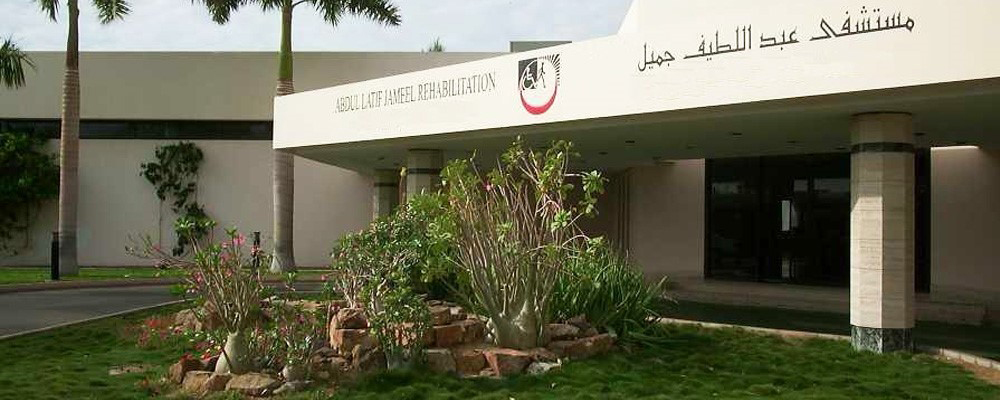
Established in 1997, the hospital was the first non-profit rehabilitation hospital in Saudi Arabia, providing comprehensive care for adults and children.
In 2018, this early engagement with the healthcare sector was taken a step further with the co-founding by Community Jameel of the Abdul Latif Jameel Clinic for Machine Learning in Health (the Jameel Clinic). The Clinic is based at Massachusetts Institute of Technology (MIT) and builds on MIT’s pioneering history in artificial intelligence and life sciences.
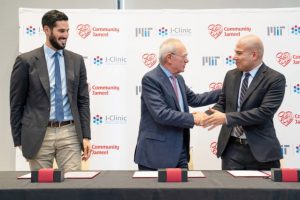
The Jameel Clinic is at the nexus of data, AI and health with a focus on technologies that are changing the landscape of healthcare, from early diagnostics, drug discovery, to care personalization and management.
It develops novel algorithms for modelling biological and clinical data and is making discoveries in machine learning, biology, chemistry and clinical sciences.
The Clinic has already contributed to a number of exciting breakthroughs. In the context of the COVID-19 pandemic, for example, researchers used AI and big data to predict how infection rates would evolve, based on peoples’ movement patterns and behaviors[6]. It also led a study to ‘predict’ if an individual was over-tired, rundown or stressed, thereby increasing their likelihood of falling ill, based on data collected from wearable sensors and smartwatches[7]. The team plan to roll-out their research to look at viral infections, such as SARS-CoV-2, the virus that causes COVID-19[8].
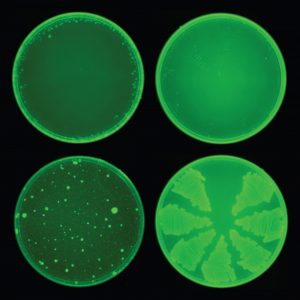
Photo Credit © courtesy Collins Lab at MIT
Another notable success for the clinic came in February 2020, with the AI-driven identification of a powerful new antibiotic compound, Halicin.
The molecule identified was screened from more than a hundred million chemical compounds in just a matter of days using AI – a task which previously would have been unachievable.
Using a different machine-learning model, the researchers also showed that this molecule would likely have low toxicity to human cells.
The outstanding work of the Jameel Clinic is complemented by another Community Jameel co-founded lab, the Abdul Latif Jameel Institute for Disease and Emergency Analytics (the Jameel Institute), based at Imperial College London.
Established in 2019, the Jameel Institute uses AI-based data analytics to identify, map and prioritize preventable communicable disease risk and public health worldwide[9], as part of its mission to improve the lives of the world’s populations most vulnerable to infectious disease.
The Jameel Institute has been at the forefront of the SARS Cov-2 (COVID-19) response, working with governments and multilateral organizations to understand the impact of the disease on public health, economics and policy. In May 2020, as the COVID-19 pandemic first started to exert unprecedented pressures on healthcare systems across the globe, the institute launched a digital tool to help hospitals and public health services manage critical capacity more effectively, enabling them to meet the increased demand.
Developed by a team of researchers, led by Deputy Director Dr Katharina Hauck, the Jameel Institute Pandemic Hospital Planner can calculate the capacity of beds, staff and ventilator equipment when implementing a number of healthcare provision interventions, such as cancelling elective surgeries and converting operating theatres to critical care wards. The planner also allows hospital management to calculate the number of additional staff members required to fully operationalize additional beds.
Another Community Jameel-backed research lab, the Jameel Poverty Action Lab, or J-PAL, at MIT, also has a specific health program. J-PAL’s Health sector focuses on identifying policies and programs effective at improving the reach, quality, and take-up of health services and products. Recent projects include an initiative to increase measles vaccination in India, and research into the efficacy of providing free preventive health products in low-income countries.
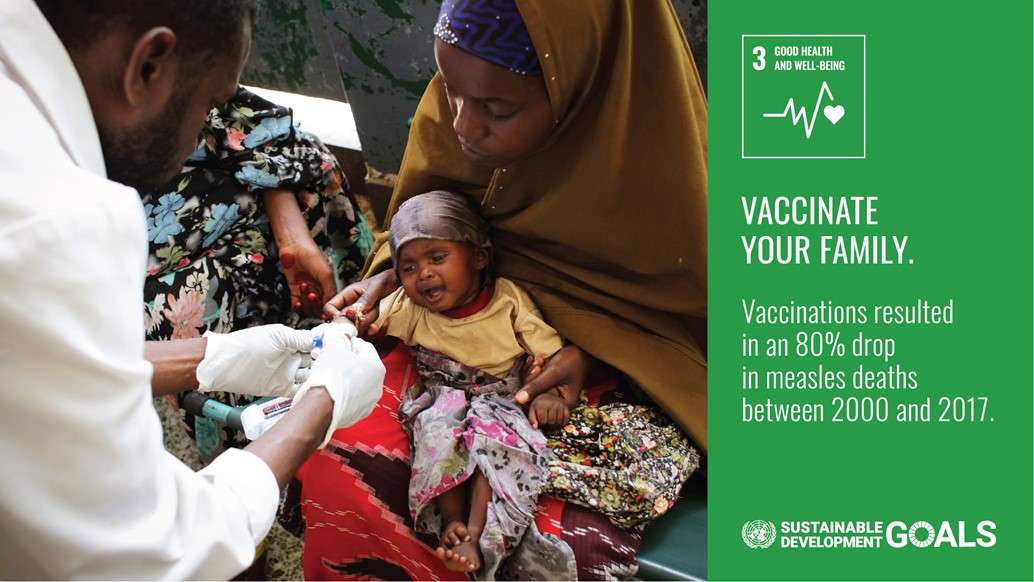
In Saudi Arabia, Community Jameel established the Tanweer Program for Orphans in 2005, partnership with the Saudi Arabian Ministry of Labor and Social Development. It aims to make a meaningful difference for academically gifted orphans aged 14-17, improving their wellbeing and brightening their lives with an annual international trip, expanding their cultural horizons and motivating them to continue their academic progress.
In collaboration with King Abdulaziz University, Community Jameel Saudi launched the Jameel Fund for Infectious Disease Research and Innovation in order to combat COVID-19 and related diseases and illnesses caused by infectious viruses. The Jameel Fund supports numerous research projects and enhances the ability of specialists in identifying, preventing, diagnosing, and treating these diseases. In addition, the fund publishes accredited articles based on specialised research which is conducted and reviewed by esteemed healthcare specialists and researchers in this field and is overseen by a joint committee that includes representatives from King Abdulaziz University and Imperial College London.
Striding into the future . . .
Helping to fund leading-edge innovation and technologies through research labs like the Jameel Clinic and the Jameel Institute demonstrates the depth of the Jameel Family’s long-term commitment to tackling global healthcare challenges.
But R&D alone will only take us part-way down the path towards the objectives of SDG 3. To make a lasting, physical improvement in healthcare means taking the research from the labs and getting it out to patients in the field where it is sorely needed. That’s why Abdul Latif Jameel is also partnering with leading health tech companies across the globe, with the aim of strengthening healthcare accessibility.
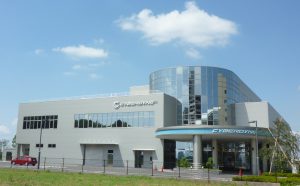 In 2017, it signed a partnership agreement with Japanese health tech innovator Cyberdyne, which specializes in advanced spinal injury rehabilitation technology using robotic exoskeletons. The partnership saw this exciting technology introduced to Saudi Arabia for the first time. The agreement with Cyberdyne was extended in 2019, with the aim of rolling out its Hybrid Assistive Limb (HAL®) technology across the Gulf region[10] and establishing the Abdul Latif Jameel Hospital as a regional training center.
In 2017, it signed a partnership agreement with Japanese health tech innovator Cyberdyne, which specializes in advanced spinal injury rehabilitation technology using robotic exoskeletons. The partnership saw this exciting technology introduced to Saudi Arabia for the first time. The agreement with Cyberdyne was extended in 2019, with the aim of rolling out its Hybrid Assistive Limb (HAL®) technology across the Gulf region[10] and establishing the Abdul Latif Jameel Hospital as a regional training center.
Abdul Latif Jameel established a similar partnership with another Japanese health tech pioneer, Cellspect, in 2019. Cellspect has developed an innovative point-of-care testing device that can check sugar metabolism, lipid and liver function in just five minutes. The collaboration aims to bring this speedy and affordable blood testing to developing countries across the Middle East, Africa, Southeast Asia and India.
Also helping to commercialize and distribute cutting edge technologies is an agreement between Abdul Latif Jameel and the Japanese Organization for Medical Device Development (JOMDD), with the aim of helping scientists, engineers, clinicians and entrepreneurs bring forward new devices and technology. The first of these is already introduced: a pioneering surgical technique AV NeoTM – an alternative to artificial aortic valve replacement using the patients’ own tissue, with a 10-year survival rate of 85.9% compared to less than 80% for alternative procedures.
A strong platform for action
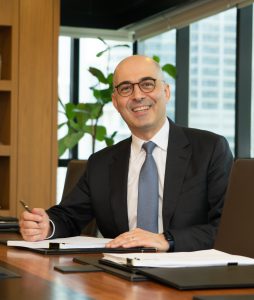
CEO, Abdul Latif Jameel Health
In 2020, as the world struggled to contain the COVID-19 pandemic, Abdul Latif Jameel doubled-down on its commitment to improving global access to healthcare with the establishment of Abdul Latif Jameel Health.
Abdul Latif Jameel Health reflects the Jameel family’s long-established commitment to innovating for a better future.
Headed by Akram Bouchenaki, formerly a senior director at healthcare giant Gilead Sciences, it aims to bring better health to wider areas of the developing world by investing in projects, partners and products with the potential to improve access to healthcare for those who need it most.
Abdul Latif Jameel Health is working with the global investment arm of the Jameel family, JIMCO (the Abdul Latif Jameel Investment Management Company) and its dedicated JIMCO Life Sciences Fund to further accelerate access to modern medical care with a series of targeted investments.
The first deal was signed in January 2021, with a commercial partnership with US-based Evelo Biosciences, a clinical stage biotechnology company developing a new modality of orally delivered medicines. Under the agreement, the two companies will collaborate to develop and commercialize Evelo’s lead inflammation product candidate EDP1815 across the Middle East, Turkey and Africa.
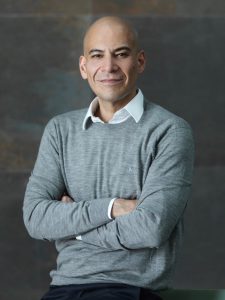
Founder, Abdul Latif Jameel Health; Deputy President & Vice Chairman, Abdul Latif Jameel
Barely a month later, the next investment was agreed, with cutting-edge life sciences innovator, Cellarity. Founded by Flagship Pioneering, Cellarity is innovating a new approach to drug discovery based on the computational modeling of cell behavior. This leads to a more complete understanding of system and network biology to uncover cell-behavior-targeted medicines for a wide variety of diseases. More deals are already in the pipeline.
“Abdul Latif Jameel has proven over 75 years its ability to build partnerships at all levels across multiple industries, to understand different markets and, crucially, to deliver what those different markets need to meet local expectations.
Abdul Latif Jameel Health replicates this model in the healthcare industry, accelerating access to modern medical care by opening up new markets for distribution of existing solutions, with a particular focus on the global south, and investing in the future of MedTech,” says Fady Jameel, Founder, Abdul Latif Jameel Health and Deputy President and Vice Chairman, Abdul Latif Jameel.
Working towards a brighter, healthier future for all
Undoubtedly, and despite the growing wealth of our society, the global scale of the healthcare challenges we face is unprecedented. Resolving them and achieving the goals of UN SDG 3 will require a strategic and unified effort. But it is an effort we must make to secure better health and wellbeing, and a brighter future, for communities in every corner of our planet.
Access to healthcare must be seen as an undeniable basic human right, irrespective of where people live or their economic means – just like water or shelter. Although a difficult and multifaceted problem, Abdul Latif Jameel and Community Jameel, working with committed partners in the public, private and third sectors, are determined to be part of the solution.
Learn more about how the Jameel Family’s activities are contributing to the Sustainable Development Goals by visiting: https://jameel75.com/sdg to watch our video and download a summary report.
[1] https://www.who.int/hdp/en/
[2] Sustainable Development Goals | United Nations Development Programme (undp.org)
[3] Sustainable Development Goals | United Nations Development Programme (undp.org)
[4] https://www.thelancet.com/journals/langlo/home
[5] https://elibrary.worldbank.org/doi/10.1596/978-1-4648-0527-1_ch13#
[6] https://www.jclinic.mit.edu/post/neural-network-aided-quarantine-control-model-estimation-of-covid-spread
[7] https://www.jclinic.mit.edu/post/ml-for-covid-19-can-ai-give-you-an-alert-indicating-a-viral-infection-before-you-feel-symptoms
[8] https://www.jclinic.mit.edu/post/ml-for-covid-19-can-ai-give-you-an-alert-indicating-a-viral-infection-before-you-feel-symptoms
[9] https://www.imperial.ac.uk/jameel-institute/research/strengthening-health-systems/
[10] https://www.alj.com/en/news/abdul-latif-jameel-and-cyberdyne-expand-collaboration-across-gcc-region/





 1x
1x

 Added to press kit
Added to press kit


